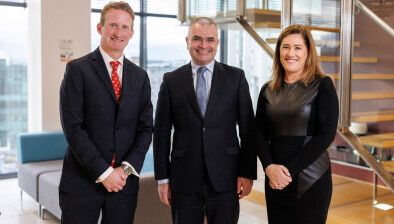Mason Hayes & Curran: Irish businesses unprepared for pensions auto-enrolment

Pictured: Mason Hayes & Curran partner Catherine O'Flynn.
The majority of Irish businesses are not fully prepared for pensions auto-enrolment, a survey by Mason Hayes & Curran has found.
The business law firm surveyed 270 employers at its recent webinar, finding that most companies are still finalising plans, despite the scheme taking effect on 1 January 2026.
Two-thirds of respondents (66 per cent) said they were still working on compliance, while 18 per cent have yet to start. Only 16 per cent said they were fully prepared with plans already in place.
Stephen Gillick, head of pensions at Mason Hayes & Curran, today warned employers are facing a short window to act.
He said: “Many businesses are juggling multiple priorities as the January deadline approaches. Auto-enrolment will introduce entirely new processes for payroll, HR and finance teams.
“We are working closely with clients to design and test these processes so that they are fully operational before the new year. The biggest challenge now is turning awareness into action.”
When asked about the main challenge, over half (51 per cent) pointed to the administrative and HR burden. Cost of contributions was cited by 27 per cent, while 22 per cent highlighted employee engagement and communication.
Catherine O’Flynn, employment law partner at Mason Hayes & Curran, said employers will need strong communication plans to manage expectations.
“Auto-enrolment represents a significant shift in how employees will save for retirement,” she said.
“We are helping our clients prepare for its introduction by guiding them through the legislation, assisting employers with workplace impact assessments and determining whether changes need to be made to their suite of employment documents.
“We are also helping clients prepare clear internal communications, so employees understand the imminent changes and feel confident about what they mean in practice. That transparency will be crucial to maintaining trust and building long-term confidence.”
Two-thirds (66 per cent) of respondents said employee reactions would likely be mixed, with only 27 per cent expecting a mostly positive response.
Asked what support would be most valuable, 60 per cent called for clear, practical guidance on compliance. Others sought tools to manage contributions (17 per cent) or communication materials for employees (22 per cent).
Mr Gillick added: “The message from employers is consistent: they need simplicity and clarity. A straightforward framework for compliance, with clear operational steps, would ease much of the uncertainty.
“Our pensions and employment teams are already guiding clients through that process, identifying the key actions needed for full compliance before January.”








